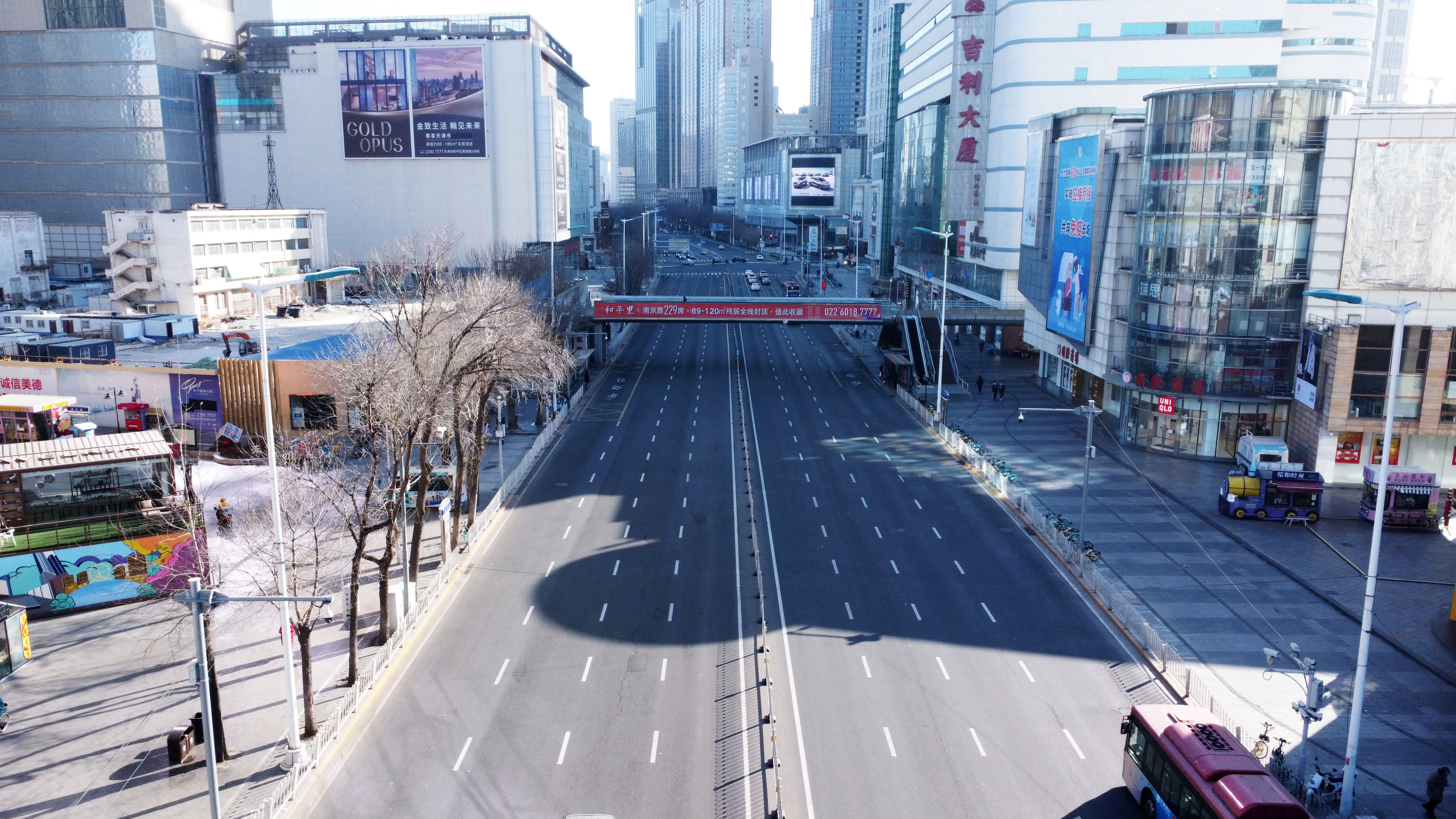Covid lockdowns, quarantines and restrictions are causing a backlog in some of China’s major ports, resulting in “chaos” and pushing up air freights by as much as 50% in some cases, analysts tell CNBC.
Ahead of the extended Lunar New Year holiday in China, air freight rates have spiked and some shipping firms have suspended services, putting the spotlight on overwhelmed supply chains again.
It comes as China pushes ahead with its zero-Covid strategy — which means a recent spike in infections has resulted in lockdowns and curbs in the largest port hubs and major cities across the country.
“Although ports are still open, current restrictions – like mandatory quarantines and testing – continue to slow down transport and cause delays,” Atul Vashistha, founder and chairman of supply chain consultancy Supply Wisdom, told CNBC.
China’s key priority right now is to limit the spread of Covid cases ahead of next month’s Winter Olympics and the upcoming Lunar New Year, he added. However, the ensuing curbs at ports have also let to some “chaos.”
“Products are piling up while ships are banned entry. Between negative PCR-test requirements and last-minute re-routing, 2022 is starting off like 2021 ended – chaos,” Vashistha said referring to polymerase chain reaction Covid tests.
Cases have been reported in the key port cities of Shenzhen, Tianjin and Ningbo, as well as the industrial hub of Xi’an, sparking lockdowns and other curbs.
Infections have also been reported in other cities such as Dalian and Anyang.
The capital of Beijing reported its first locally transmitted omicron infection on Jan. 15. On Sunday, less than two weeks before the Winter Olympics, Beijing’s authorities introduced new restrictions to contain a recent outbreak after nine locally transmitted cases were found in Beijing on a day earlier.
The Ningbo outbreak in December also sparked some curbs, and disrupted traffic at the world’s third busiest port, Ningbo-Zhoushan.
Operations have since largely resumed, but shipments were diverted to Shanghai — the busiest port in the world — causing congestion and delays there too, Judah Levine, head of research at freight booking platform Freightos Group, told CNBC.
Supply chain tech firm project44 said that the shift from Ningbo port to Shanghai “backfired on some shippers” as congestion at Shanghai increased. As a result, Shanghai recorded an 86% increase year-over-year in blank sailings, it said, referring to an industry term for when a carrier decides to skip a particular port or the entire voyage altogether.
In an email to CNBC last week, Levine from Freightos said all eyes were on China and the impact that strict outbreak containment measures might have on logistics. “Steps were taken to quash the spread of positive cases detected in multiple places including Beijing, Shenzhen, Tianjin, Dalian and several others,” he said on Jan. 19.
Rising air freight rates
Sea shipping spot rates crept up 4% on the Asia to U.S. West Coast route, Levine said, but they’re not likely to go up much further, amid a pause in manufacturing as the Lunar New Year holiday approaches and factories shut down for an extended period.
However, air cargo rates are still spiking, he added.
“With enough time to still move cargo by air, the pre-holiday rush, along with pandemic-restricted capacity is pushing air cargo rates up,” he said, adding that the Freightos Air Index showed the China to North Europe rate was at $9.59 per kg in mid January— up over 50% from below $6 per kg at the start of January.
The Lunar New Year is China’s largest holiday and hundreds of millions of people traditionally travel back to their home towns from the cities they work in.
Some major shipping firms, such as Ocean Network Express and Hapag-Lloyd, suspended services and operations even earlier than last year to celebrate the season, according to Vashistha. That’s straining already-fragile supply chains, he said.
This latest shock comes at a bad time for global supply chains. They were already stressed from the Christmas period combined with the omicron variant, but port issues in China take these complications to a new level.John FergusonEconomist Impact
Shipping costs have been falling over the past couple of months as the supply chain backlog eased, but the recent Covid surge and any potential port closures are going to cast a shadow over any progress that has been made, said Paul Gruenwald, chief economist at S&P Global Ratings.
“I would say that this is going to slow the improvement we’ve been seeing over the last couple of months,” he told CNBC’s “Squawk Box Asia” on Thursday.
Impact of China’s zero-Covid on Winter Olympics
China’s zero-tolerance for Covid will have a major impact on global supply chains, said John Ferguson, practice lead for globalization, trade and finance for think tank Economist Impact.
“This latest shock comes at a bad time for global supply chains. They were already stressed from the Christmas period combined with the omicron variant, but port issues in China take these complications to a new level,” Ferguson said.
“China’s zero-Covid strategy is key as further outbreaks will result in more closures or lockdowns in key areas,” he told CNBC. “Given that China has the Winter Olympics coming up, as well as important political events later in the year, it is unlikely that China will abandon its Covid strategy in 2022.”
One bright spot is that many companies have already been preparing for stressed supply chains scenarios, and are now putting their plans in place, he said.
Still, it won’t be all plain sailing.
“While global companies have become more nimble in this crisis, we still should expect some delays from this latest round of supply chain stress,” he added.
Supply Wisdom’s Vashistha summed it up: “Combine the shutdowns with the rise in Covid-induced port backlogs, China’s zero tolerance policy, and along with reduced aviation capacity, and the problem becomes even more clear: Cargo continues to surge with no way to move it or places to go.”
